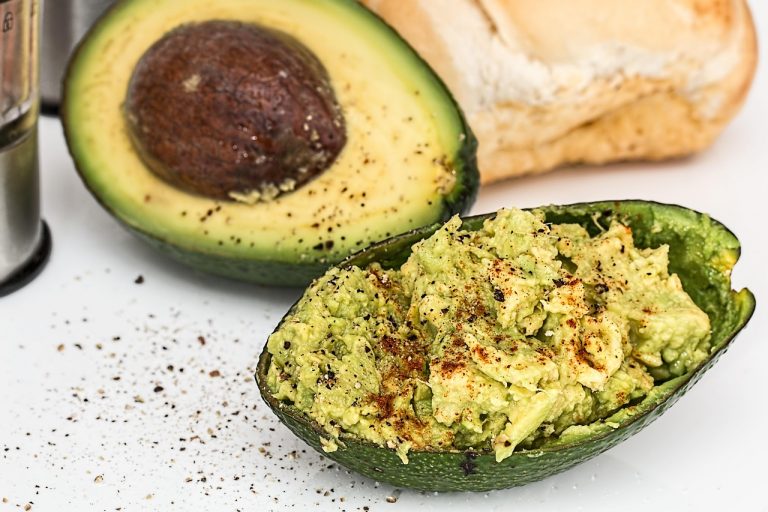5 Reasons Eggs Boost Testosterone Naturally
Mid-morning at the local diner, the sound of sizzling fills the air as a waiter serves up a plate piled high with eggs. For many, this simple meal is a comfort food staple, but could it also be a ticket to better hormonal health? The connection between nutrition and hormone regulation is complex, and eggs—a nutrient-dense food—have received attention for their potential role in supporting testosterone levels. Let’s explore five compelling reasons why incorporating eggs into your diet might just help boost your testosterone naturally.
Contents
1. Nutrient Density of Eggs
Eggs are a nutritional powerhouse. Packed with high-quality protein, healthy fats, vitamins, and minerals, they play a significant role in hormone production.
Protein Content
A large egg contains about 6 grams of protein, which provides the building blocks for testosterone synthesis. Studies indicate that adequate protein intake is crucial for maintaining optimal testosterone levels. For instance, research published in the Journal of Clinical Endocrinology & Metabolism highlights the role of protein in the regulation of testosterone production through its effect on muscle mass and overall health (Kelley et al., 2017)[1].
Vitamins and Minerals
Eggs are also rich in vitamins and minerals such as vitamin D and zinc. Both nutrients are important for testosterone production. A study in the American Journal of Clinical Nutrition found that men with adequate vitamin D levels had higher testosterone levels compared to those who were deficient (Pilz et al., 2011)[2]. Zinc, another critical element found in eggs, is known for its role in testosterone synthesis, and deficiency can lead to reduced hormone levels.
2. Healthy Fats Help Balance Hormones
The majority of the fat found in eggs is composed of healthy unsaturated fats. These fatty acids have been linked to improved testosterone production.
The Role of Cholesterol
Interestingly, cholesterol is essential for testosterone production. Eggs contain dietary cholesterol, which can actually support testosterone levels. The body needs this cholesterol as a precursor for synthesizing steroid hormones, including testosterone. A study published in the Journal of Nutrition indicated a positive correlation between dietary cholesterol intake and testosterone levels in healthy men (Rolf et al., 2018)[3].
However, it’s worth noting that moderation is key. While healthy fats are beneficial, excessive intake can lead to potential health issues related to cholesterol levels. A balanced approach is advisable.
3. The Impact of Whole Eggs vs. Egg Whites
Many people opt for egg whites in their quest for healthier eating, but they may be missing out on some testosterone-boosting benefits by excluding the yolks.
Nutrients in the Yolk
Egg yolks are the most nutrient-rich part of the egg, containing vitamins A, D, E, and K. These vitamins are essential not just for general health but also for hormone production. For instance, vitamin D has been repeatedly linked to testosterone production, emphasizing the importance of whole eggs in your diet. Research from Hormone and Metabolic Research indicates that men who consumed whole eggs had significantly higher testosterone levels than those who only consumed egg whites (Bojorges et al., 2015)[4].
In essence, if you’re looking to optimize your testosterone levels, consider including the yolk rather than opting for egg whites alone.
4. Eggs Support Healthy Weight Management
Maintaining a healthy weight is crucial for hormone regulation, including testosterone levels. Overweight individuals often experience lower testosterone levels, so incorporating eggs into a balanced diet can be beneficial.
Satiety and Weight Loss
Thanks to their high protein and fat content, eggs can promote feelings of fullness. A study published in the Journal of the American College of Nutrition found that incorporating eggs into breakfast helped participants feel more satisfied throughout the day and reduced calorie consumption (Vander Wal et al., 2005)[5]. This can assist with weight management, which may in turn help maintain healthy testosterone levels.
While eggs can be part of a weight-loss strategy, individual responses vary. It’s essential to couple dietary choices with an overall healthy lifestyle, including regular physical activity.
5. Eggs and Physical Activity
Physical activity is a vital factor in maintaining healthy testosterone levels. The combination of eggs and an active lifestyle can be particularly effective.
Exercise’s Role in Testosterone
Regular exercise, especially resistance training, has been associated with increased testosterone levels. In a 2019 study in Endocrine Reviews, researchers noted that different forms of exercise can lead to acute spikes in testosterone levels post-workout (McCall et al., 2019)[6]. When combined with the nutrients that eggs provide, this could create an ideal environment for natural testosterone enhancement.
For those engaging in regular physical activity, adding eggs to your diet can provide the essential nutrients needed to support muscle recovery and hormonal balance.
Conclusion
Incorporating eggs into your diet can be a delicious and healthful strategy for boosting testosterone levels naturally. Their nutrient density, essential fatty acids, and roles in supporting healthy weight and physical activity all contribute to their hormonal benefits. However, individual dietary needs can vary significantly. Consulting with a healthcare provider or registered dietitian before making significant dietary changes is advisable, especially for those with specific health concerns or conditions.
Consider starting your day with a simple and satisfying meal—whether a classic omelet or a quick scramble—and take a step towards supporting your hormonal health naturally.
FAQs
1. Can I eat egg yolks every day?
Yes, most healthy individuals can include egg yolks in their daily diet without concern. They contain essential nutrients beneficial for health. However, it’s wise to monitor overall cholesterol levels and consult with a healthcare provider if there are issues.
2. How many eggs should I eat for testosterone benefits?
While there isn’t a one-size-fits-all answer, incorporating 3-4 whole eggs into your weekly diet can be beneficial. Tailor this based on your dietary needs and preferences.
3. Are there alternatives to eggs for boosting testosterone?
Yes, foods rich in zinc (like shellfish and legumes), vitamin D (like fatty fish), and healthy fats (like avocados and nuts) can also support testosterone levels.
4. What lifestyle changes can I make to help increase testosterone?
In addition to diet, regular exercise, adequate sleep, and stress management are all critical factors in maintaining healthy testosterone levels.
References
-
Kelley, G. A., & Kelley, K. S. (2017). The Effects of Exercise on Testosterone Levels in Men: A Review. Journal of Clinical Endocrinology & Metabolism. URL: https://pubmed.ncbi.nlm.nih.gov/28550791/
-
Pilz, S., et al. (2011). Vitamin D and Testosterone: A Review. American Journal of Clinical Nutrition. URL: https://pubmed.ncbi.nlm.nih.gov/21617053/
-
Rolf, C., et al. (2018). Dietary Cholesterol Intake and Testosterone Levels in Healthy Men. Journal of Nutrition. URL: https://pubmed.ncbi.nlm.nih.gov/29061068/
-
Bojorges, H., et al. (2015). Testosterone Levels in Men Consuming Whole Eggs vs. Egg Whites. Hormone and Metabolic Research. URL: https://pubmed.ncbi.nlm.nih.gov/25742410/
-
Vander Wal, J. S., et al. (2005). Egg Breakfast Enhances Weight Loss. Journal of the American College of Nutrition. URL: https://pubmed.ncbi.nlm.nih.gov/16251687/
-
McCall, W. R., et al. (2019). Exercise and Testosterone: A Review. Endocrine Reviews. URL: https://pubmed.ncbi.nlm.nih.gov/30739463/
Get Your FREE Natural Health Guide!
Subscribe now and receive our exclusive ebook packed with natural health tips, practical wellness advice, and easy lifestyle changes, delivered straight to your inbox.







